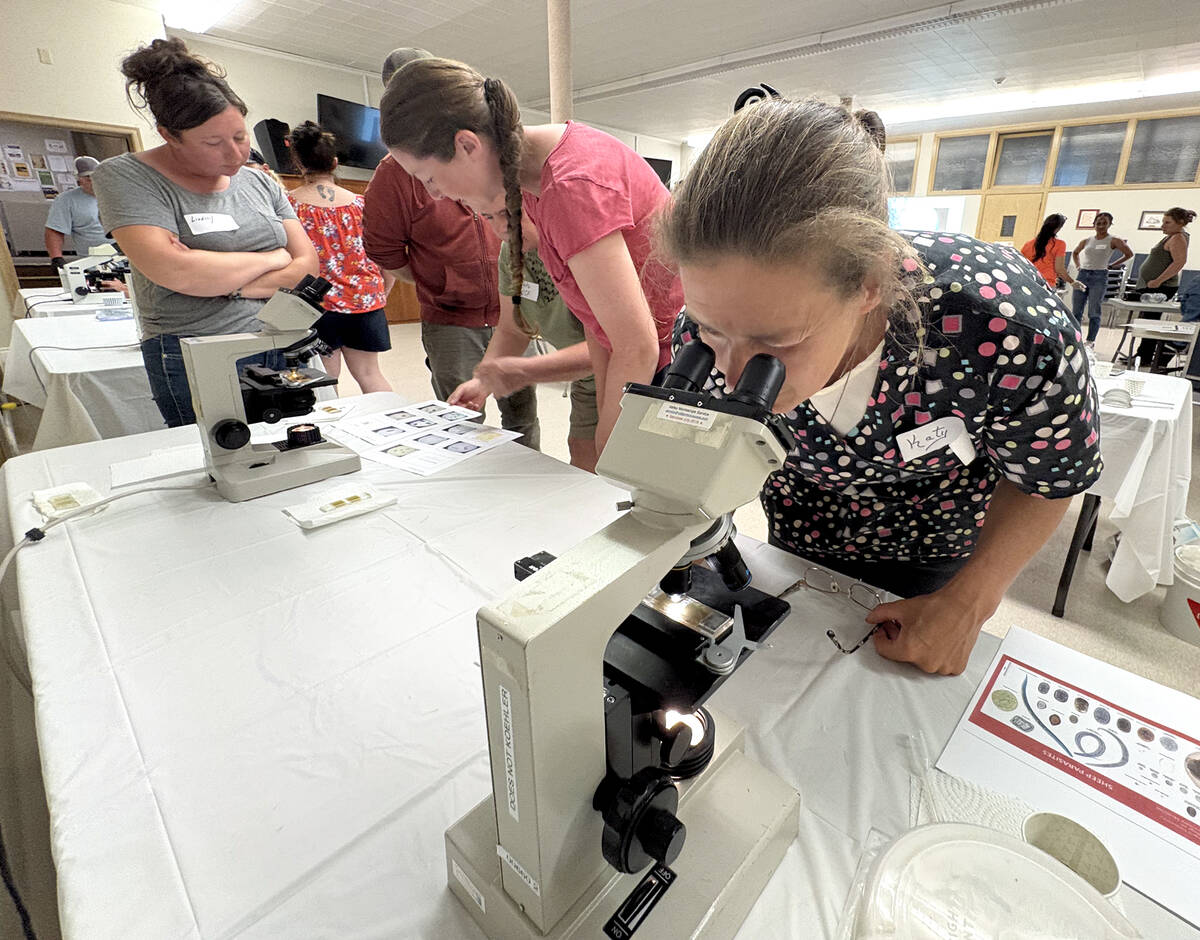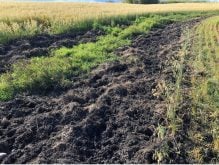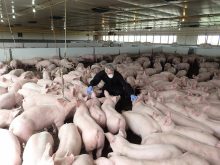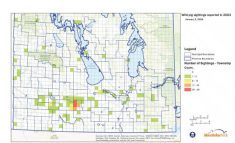Producer groups say they support the auditor general’s recommendations that the province do more to prepare for an animal disease outbreak, but say government staff are working hard to help.
“They’ve been highly engaged and they’ve given everything that they can,” said Jenelle Hamblin of the province’s chief veterinary officer and Manitoba Agriculture staff.
“I think that if we had more time, more people, more funding, we probably could do more,” said Hamblin who is manager of swine health programs with Manitoba Pork. “We’re working with what we have, and I think that we have done a very good job.”
Read Also

Smart deworming for sheep starts with individual fecal egg counts
Fecal egg count tests are one step to managing dewormer resistance and managing sheep parasites on Canadian sheep farms to maintain flock health.
In a report released late January, Manitoba’s auditor general, Tyson Shtykalo, concluded that “the Department of Agriculture and Resource Development… is working to prevent and prepare for animal disease emergencies, but significant more needs to be done.”
Shtykalo found no emergency response plans were in place for most diseases of interest. The department had a response plan in place for avian influenza and policy and procedure documents that contained elements of plans for another seven out of the 36 diseases of interest, he added.
The report recommends the department prepare a complete response plan for each disease “identified as significant to Manitoba.”
This should be based on risk assessments done to determine which are priority – also a report recommendation.
Other directives dealt with a lack of surge capacity within the department. Shtykalo wrote that the Animal Health and Welfare Branch has 52 staff but only six, including the chief veterinary officer (CVO), work directly with the animal health unit and are responsible in case of an emergency.
“Branch management and staff told us that if an animal disease emergency were to occur, many of their day-to-day responsibilities would be left undone as they do not have backup staff,” the report says.
Shtykalo also found the department had no biosecurity supplies stockpiled. He recommended the department stash supplies and ensure staff required for an emergency response would be available.
The report lays out 13 recommendations, including ensuring that the department has legislative authority to respond as required and to perform prevention activities.
The Animal Disease Act gives authority over disease prevention, but many regulations for these activities have never been written.
The department may also lack authority to dispose of carcasses if livestock had to be culled.
Producer groups shared some of the auditor general’s concerns.
Manitoba Chicken Producers executive director Wayne Hiltz said his organization hasn’t experienced disorder or underpreparedness in the department, but occasionally has run up against understaffing.
“We have experienced delays in required actions due to staffing issues, whereby Animal Health staff have had to prioritize based on perceived risk, which has left our industry vulnerable,” he said in an emailed statement.
Hiltz said Manitoba Chicken Producers has had concerns about the speed of results from Veterinary Diagnostic Services (VDS), a provincial lab. Shtykalo also identifies this as a concern.
“VDS has been receptive to these concerns and is undertaking steps to rectify,” Hiltz said.
Hiltz said he is also concerned the department lacks authority to require producers to cull animals if a disease is detected.
“There have been instances where backyard flocks have refused to depopulate due to disease, putting at risk the entire poultry industry, and the government has been unable to order depopulation,” he said.
“While not every case requires depopulation, the fact that the government cannot order it… is concerning to our industry.”
Hiltz said while he supports directives in the report, in his view many are already implemented. Manitoba Chicken Producers worked with the province to develop a response plan for avian influenza and we’re quite satisfied with the government’s performance with respect to its role,” he said.
Hamblin said Manitoba Pork participated in the audit process and is encouraged to see that its concerns were incorporated – including on concerns of surge capacity.
Shw spoke positively of working with the province to combat outbreaks of porcine epidemic diarrhea (PED).
“We can always do more,” she said.
Manitoba Pork is part of national, regional and provincial planning for a potential outbreak of African swine fever virus. The disease has decimated pig herds in China and several other countries.
Manitoba Pork’s concern is having concrete plans in place to respond on Day 1. Hamblin said they and the province have worked hard but there are still gaps.
For instance, they need more planning on what a response might look like on a diseased farm versus one that has seen its market interrupted, Hamblin said. They need further clarification on how each industry partner will act.
Manitoba Beef Producers sent the Co-operator a brief statement which said it believes the report’s recommendations are reasonable “and asks that the commodity groups be consulted as the government works through the different recommendations, such as making possible changes to legislation or regulations.”
In a written response included in the report, the province said “significant work is already underway to address many of the recommendations.”
These include participation in the African Swine Fever Executive Management Board (a joint industry, provincial and federal project); increased staff resources including the hiring of an extension veterinarian; and development or updating of some disease plans including one for ASF.




















